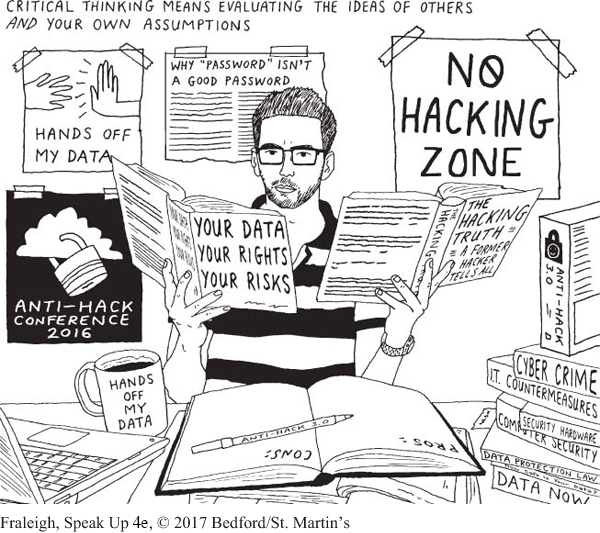Emphasis on Critical Thinking
In addition to encouraging greater attention to cultural awareness, scholars of public speaking have begun emphasizing the importance of critical thinking skills for speakers who are preparing presentations. Critical thinking refers to the analysis and evaluation of ideas based on reliability, truth, and accuracy. When you are engaged in critical thinking, you carefully evaluate the evidence and reasoning presented in the message.40 You also are open-
26

Before you present ideas to an audience, you should feel confident that those ideas are reasonable. Rather than assuming that your beliefs are true, suspend judgment and consider other perspectives. For example, suppose you are interested in speaking about a law that requires companies to pay for new countermeasures to keep customers’ personal data safe from hackers. You could research the perspectives of information technology professionals, businesses affected by the law, consumer protection organizations, legal scholars, and economists. Carefully consider the ideas of each group, and modify your opinions when new ideas make sense.
To use critical thinking, you also would evaluate the probable truth of the claims you plan to make. Anybody can make a claim, but not all claims are based on careful analysis. For example, if you are researching the ability of new technology to keep information safe from hackers, the views of a highly regarded cybersecurity consultant are more likely to be accurate than those of an angry customer who posted a rant on social media.
27